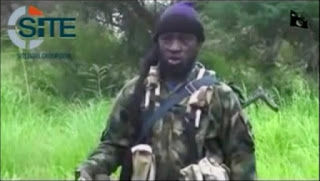For seven years, Boko Haram has terrorized northeast Nigeria and
surrounding countries, killing tens of thousands and displacing
millions. Despite the Nigerian government claiming a “technical” victory
over the militant group after retaking much of its territory, Boko
Haram still has a massive capacity for inflicting destruction and
casualties. Nigeria’s efforts to vanquish the Islamist group, however,
may have received a boost by the growing reports of factionalism and
infighting within Boko Haram, which is turning increasingly violent. In
recent weeks, two rival factions in Boko Haram have clashed in Nigeria’s
northeastern Borno state, close to Lake Chad— one loyal to Abubakar
Shekau, the group’s ostensible leader since 2009, and the other led by
Abu Musab al-Barnawi, recently proclaimed as the group’s
commander-in-chief in a publication of the Islamic State militant group
(ISIS).Shekau’s faction, in particular, has suffered as a result—three of his
fighters were killed on September 1 in an attack by Barnawi’s troops in
Yele and Arafa, two villages in Borno, while an unspecified number were
also killed in the nearby Marte district on August 31, hough both factions remain shadowy and hard data—such as numbers of fighters—is difficult to come by, Newsweek reviews what we know about the division in the Nigerian militant group.
The Shekau Faction
Leader
An ethnic Kanuri born in Nigeria’s Yobe state who proclaims himself
to be an Islamic theologian, Abubakar Shekau took over the leadership of
Boko Haram following the death of the group’s founder Mohammed Yusuf in
2009. Shekau was designated a global terrorist by the United States in
2012.
In his audio message, Shekau said he had been “deceived” about
Barnawi’s appointment, denounced his opponent as an infidel and accused
him of plotting a leadership coup. In the following video, Shekau
described himself as the group’s rightful leader and vowed to continue
the insurgency, while also stating that his group had “no desire to
fight our Muslim brethren.” Shekau also continued to refer to ISIS Leader as “caliph,” indicating that the split between the two groups was more complicated than previously thought.

No comments:
Post a Comment